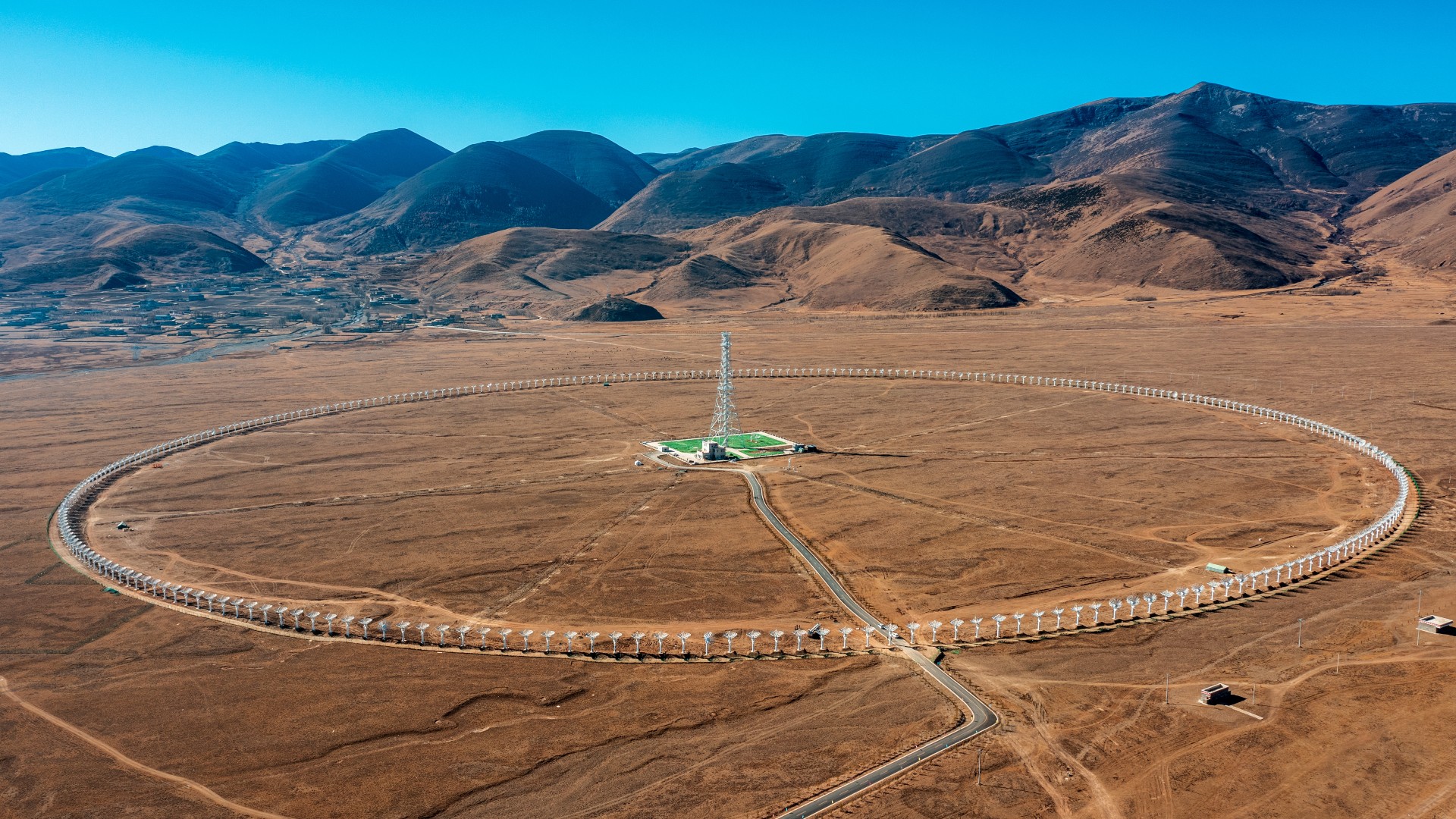
The world's largest array of sun-monitoring radio telescopes has begun trial operations in southwest China.
The Daocheng Solar Radio Telescope (DSRT) consists of 313 dishes, each with a diameter of 19.7 feet (6 meters), forming a circle with a circumference of 1.95 miles (3.14 kilometers). A 328-feet-high (100 m) calibration tower stands in the center of the ring.
The array has undergone half a year of debugging and testing, demonstrating the capability to consistently and reliably monitor solar activity with high precision. Trial operations officially started July 14, according to CCTV News.
Related: China completes world's largest solar telescope array with a whopping 313 dishes
Scientists simulate the effect of a much larger telescope and gain much higher resolution and sensitivity by collecting electromagnetic radiation from the sun with the multitude of dishes. The signals are combined, and then sophisticated mathematical algorithms are then used to reconstruct images.
DSRT is situated in Daocheng County, on a plateau in Sichuan province in southwest China. Its main task is continuous monitoring of the sun and observing solar flares and coronal mass ejections (CMEs). It will also aid research into monitoring and early warning methods for pulsars, fast radio bursts and asteroids.
DSRT was developed by the National Space Science Center under the Chinese Academy of Sciences (CAS). The array is part of the Meridian Project on space weather monitoring, a major China national science and technology infrastructure.






